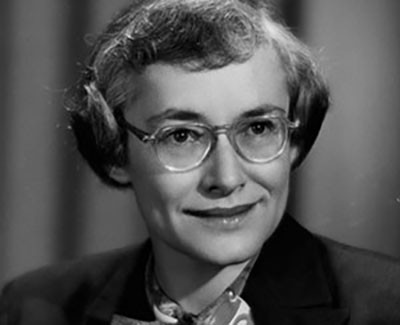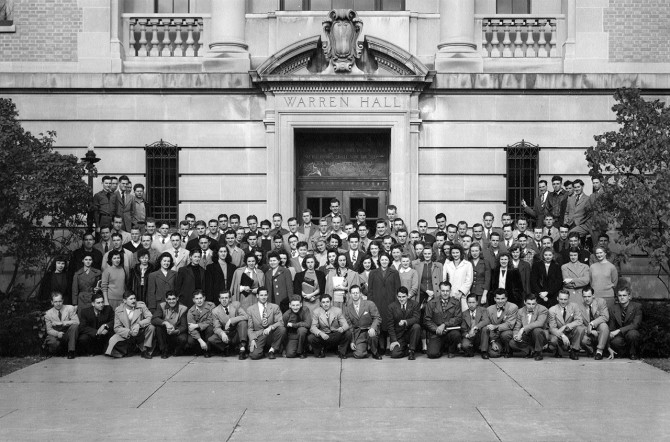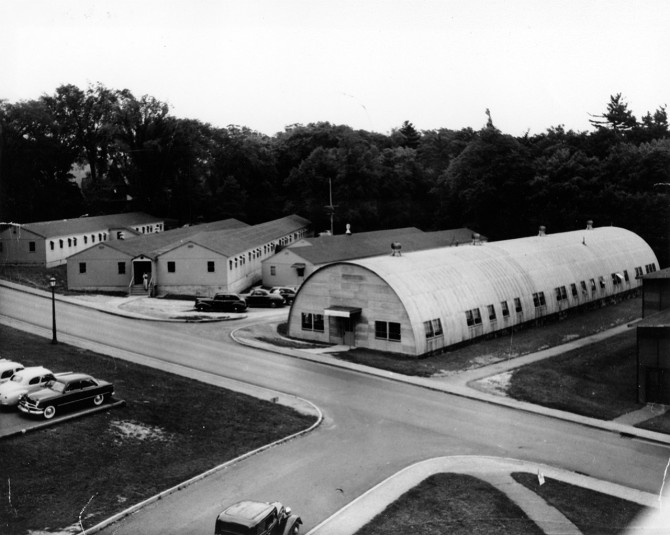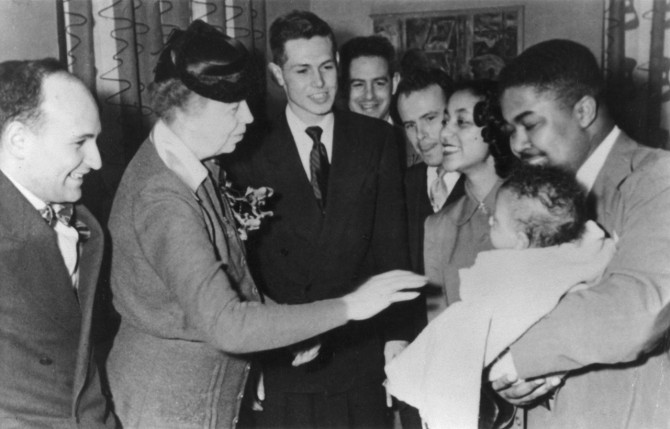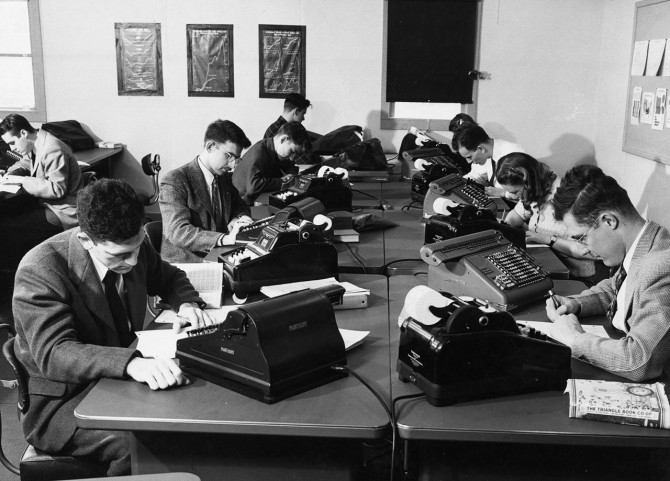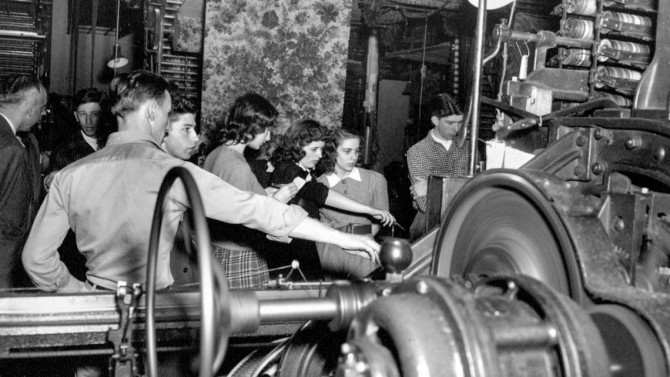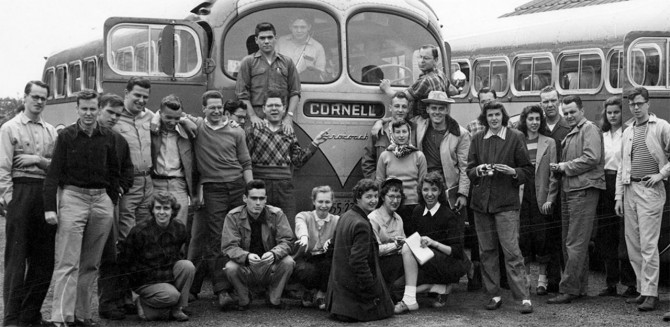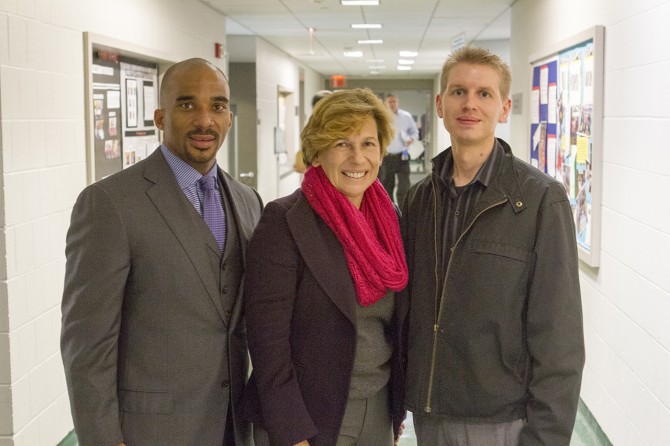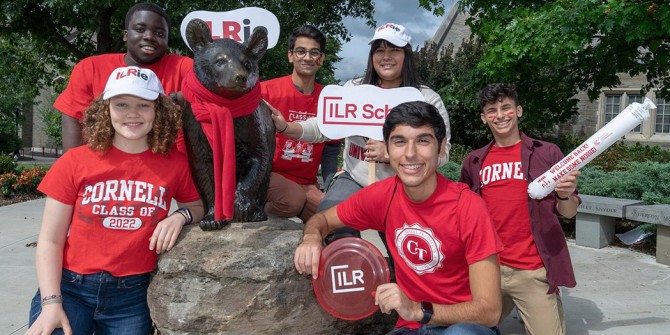75 years later, ILR School notes its broad impact, looks ahead
By Mary Catt
It was an audacious idea: From scratch, build a college that would educate people to bring warring workers and bosses to the negotiating table. But 75 years ago, just two months after World War II ended and as labor-management conflict raged in factories across the nation, audacity became reality: The New York State School of Industrial and Labor Relations held its first classes with 118 students, 67 of them veterans.
The ILR School has since graduated more than 13,000 students, who’ve gone on to become union and Fortune 100 leaders, White House appointees, entrepreneurs whose foresights change our culture, and academics whose scholarship shapes policy.
Just months after ILR began operations in borrowed space on the Ag Quad, it was holding “extension” classes in eight cities for people already in the workplace. Tens of thousands of people have benefitted from ILR’s outreach classes since.
ILR expertise is broad, lending itself to areas such as: best practices for workers and the safe reopening of schools and businesses during the pandemic; equitable working conditions for workers from Tompkins County to New York City to southeast Asia; the conversion of coal-energy jobs to clean-energy jobs; pay and opportunity gaps for minorities, women and people with disabilities; best practices of workplace dispute resolution; and employment for people post-incarceration.
The scrappy school that subsequently moved from the Ag Quad to Quonset huts on the Engineering Quad and, ultimately, to the former quarters of the College of Veterinary Medicine on Tower Road is an integral part of Cornell today.
“ILR’s distinctive focus on the world of work is vital to Cornell’s mission as a land-grant university,” Cornell President Martha E. Pollack said. “Its teaching, research and outreach contribute directly or indirectly to a better life for countless people across the U.S. and beyond.”
ILR alumni carry into a growingly complex world the egalitarian vision of people like banker-turned-politician Irving Ives, from a small town in upstate New York. During his time in the New York State Legislature, he relentlessly drove the idea of a land-grant college that would help bridge the contentious gulf between workers and managers, and in 1945 became the school’s first dean.
ILRies carry the legacy of Frances Perkins. As U.S. secretary of labor for 12 years and the nation’s first woman cabinet member, she was instrumental in driving New Deal policies such as Social Security. As a young woman in 1911, she watched the Triangle Shirtwaist Factory burn. More than 100 garment workers perished; the tragedy was turning point for American workplace safety, and for Perkins.
She went on to guide labor and social policy as a member of Franklin D. Roosevelt’s cabinet, then joined ILR’s faculty in the 1950s.
Meanwhile, ILR grew from a New York state-focused college to a national institution that was beginning to take its labor-management expertise to Chile, Egypt, South Africa and China. Now, programs in India and Vietnam draw students from across Cornell.
ILR has expanded its research, teaching and outreach to include a new New York City hub, and co-labs in Buffalo and Ithaca, which allow students and faculty to study local community issues. ILR faculty collaborate on research with colleagues across the Ithaca campus, as well as at Weill Cornell Medicine and Cornell Tech.
The school is led today by Dean Alexander Colvin, Ph.D. ’99, the Kenneth F. Kahn ’69 Dean and the Martin F. Scheinman ’75, M.S. ’76, Professor of Conflict Resolution. Colvin’s scholarly research on mandatory arbitration has been quoted twice in the past three years by U.S. Supreme Court Justice Ruth Bader Ginsburg ’54.
“In the next 75 years,” Colvin said, “the ILR School will continue shaping work, labor and employment in ways that lead to more equitable, prosperous and sustainable outcomes, with greater voice at work. The anniversary is also the beginning of our next 75 years, as we help society navigate globalization, waves of new technology, the breakdown of traditional careers, the need for greater racial justice, a more diverse workforce and many other issues central to the future of work.”
Mary Catt is the ILR School’s communications director.
This story originally appeared in the fall 2020 issue of Ezra magazine.
Media Contact
Get Cornell news delivered right to your inbox.
Subscribe
